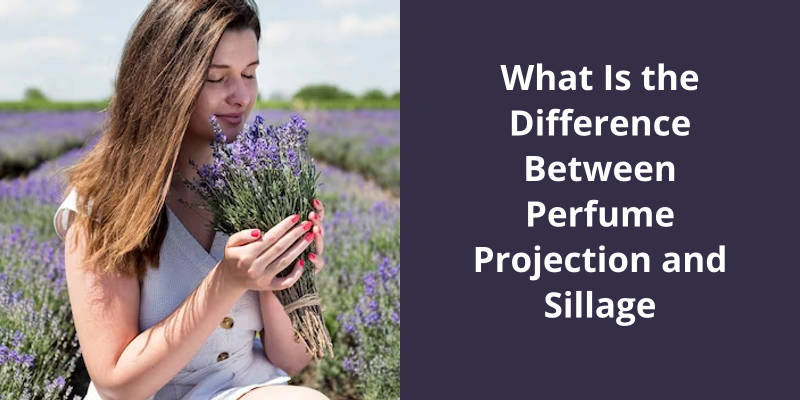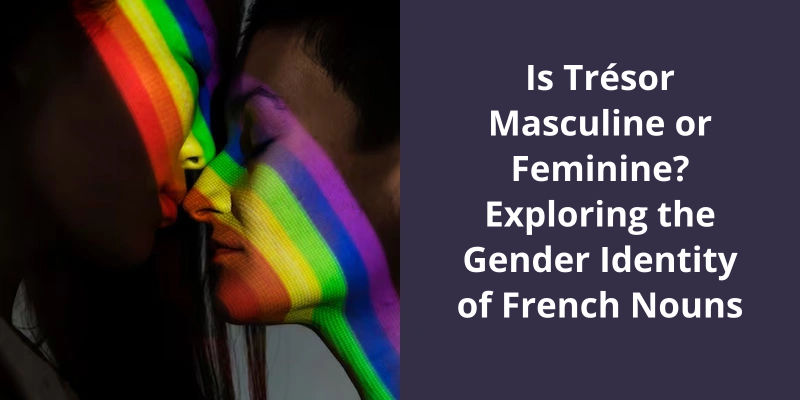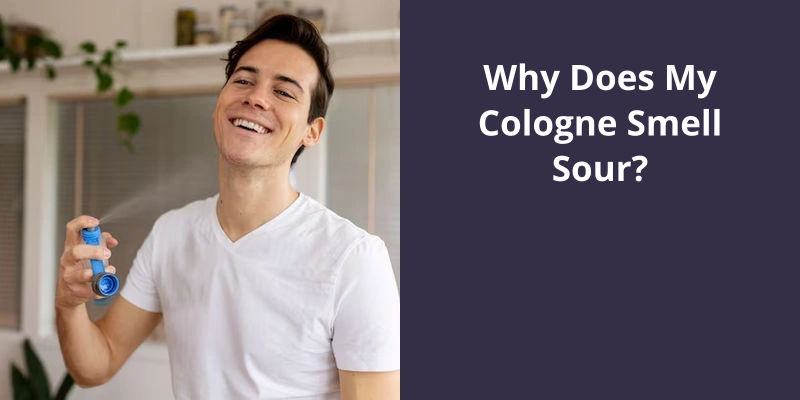The difference between perfume projection and sillage mainly lies in how the fragrance is detected. Perfume projection is about how far the scent travels from you right after you’ve applied it, acting as sort of a first impression. On the other hand, sillage refers to the scent trail left behind as you move, giving an idea of your presence even when you’re no longer in the spot. Therefore, both terms are about how others perceive your fragrance, but projection is immediate and close range, while sillage is more about the lasting scent trail.

What Is the Difference Between Sillage Projection and Longevity?
Perfume enthusiasts often speak of two key factors that contribute to the overall impact of a fragrance: sillage and projection. Though they’re closely related, they differ in their specific characteristics. Understanding the distinction between sillage and projection can deepen ones appreciation for the art of perfumery.
Sillage refers to the trail or aura that a perfume leaves behind in it’s wake. It’s the scented cloud that surrounds the wearer as they move, lingering in the air long after they’ve passed. Think of it as the invisible aura that accompanies someone wearing a captivating fragrance. Sillage can vary in intensity, with some perfumes having a more noticeable or “bigger” sillage than others.
On the other hand, projection pertains to the length or distance perfume radiates. It measures how far the fragrance extends beyond the wearers personal space. Some perfumes have a powerful projection, reaching out to captivate those nearby, while others have a more intimate projection, staying closer to the wearers skin. Projection tends to change over the longevity of a perfume, often starting strong and gradually tapering off as the scent progresses.
Sillage emphasizes the lingering trail of a fragrance, while projection measures it’s reach and distance.
Factors That Affect Sillage and Projection in Perfumes
Several factors can influence the sillage and projection of a perfume. The concentration of fragrance oils in the perfume formula is a significant factor. Perfumes with higher oil concentration tend to have stronger projection and sillage. Additionally, the quality and type of ingredients used in the perfume can play a role. Ingredients that have good diffusion properties tend to enhance projection and sillage. The application method also affects the perfume’s performance. Spraying perfume on clothes or hair can result in better sillage compared to applying it directly on the skin. Finally, environmental factors such as humidity, temperature, and air circulation can impact the way a perfume projects and diffuses in the surrounding space.
The intensity and longevity of a perfume’s sillage are influenced by various elements, ranging from the specific formulation of the fragrance to external factors like weather conditions and personal emotions. In warmer climates, the heat accelerates the evaporation process, intensifying the fragrance’s projection and making it more prominent. Similarly, your own mood and body chemistry can also influence the sillage, as certain scents may react differently with individual skin types. Understanding these factors helps unravel the intricate relationship between scent, atmosphere, and personal experience in the realm of perfume.
What Gives a Perfume Sillage?
What gives a perfume sillage? Sillage can be affected by many factors, including the type of perfume, the weather, and even your mood. When you wear a heavier perfume in hot weather, the heat will cause the perfume to evaporate faster and create a stronger sillage. Conversely, in colder weather, the perfume may not project as strongly or have as much sillage due to the slower evaporation rate.
The type of perfume also plays a role in sillage. Perfumes with higher concentrations of fragrance oils, such as parfum or extrait de parfum, tend to have stronger sillage compared to eau de parfum or eau de toilette. The higher concentration of fragrance oils allows the perfume to have a longer-lasting and more noticeable projection.
Certain notes, such as citrus or florals, are generally lighter and may not have as much sillage compared to heavier, more complex notes like woods or spices. The presence of certain ingredients can also enhance sillage, such as synthetic molecules designed to amplify the projection of a fragrance.
The application method can also affect sillage. Spraying a fragrance directly on your skin will usually result in a more intimate scent that stays closer to your body. On the other hand, spraying perfume on your clothing or in the air and walking through the mist can create a more diffuse and noticeable sillage.
Lastly, your own body chemistry and personal preference can impact the perception of sillage. Some people naturally have a stronger body scent or skin that holds onto perfume longer, which can enhance sillage. Additionally, certain individuals may prefer perfumes with more pronounced sillage, while others prefer a softer, more intimate scent that stays closer to the skin. Ultimately, finding the right balance between projection and sillage is a matter of personal taste and experimentation.
The Impact of the Concentration of Fragrance Oils on Sillage.
- The concentration of fragrance oils
- The relationship between concentration and sillage
- Effects of different concentration levels on sillage
- Fragrance longevity and concentration
- How sillage is influenced by fragrance strength
- Perceived quality and concentration levels
- The role of concentration in creating a memorable sillage
- Factors to consider when choosing a fragrance concentration
Source: What’s fragrance sillage? – SALLE PRIVÉE
However, when it comes to projection, the skin tends to be a more effective canvas for perfume. The body heat and natural oils on the skin help to activate and amplify the fragrance, allowing it to radiate and be noticed by others. The choice between skin and clothes ultimately depends on personal preference and desired longevity of the scent.
Does Perfume Project More on Skin or Clothes?
When it comes to perfume projection and sillage, the choice between applying it on the skin or on clothes can make a noticeable difference. Heat plays a significant role in the rate of perfume evaporation. Therefore, spraying perfume on clothes tends to result in lesser projection, however, it can prolong the fragrances lifespan.
In general, the projection and intensity of a perfume depend on various factors, including the perfumes composition, concentration, and the individuals body chemistry. Some fragrances may project less on clothes, as they may interact differently with fabric compared to the skin. However, this distinction can be subjective and vary from person to person.
Ultimately, the decision to apply perfume on the skin or clothes is a matter of personal preference. If you desire a stronger and longer-lasting scent, applying perfume on clothes can be a suitable option. The fabrics ability to absorb and hold fragrance can extend the perfumes lifespan, allowing it to linger throughout the day. On the other hand, applying perfume directly on the skin may result in a more intimate and nuanced experience, as the fragrance will interact directly with your body chemistry.
Perfume molecules may interact with fabric fibers and produce a different olfactory experience compared to direct skin application. Therefore, it’s recommended to test the perfume on clothes beforehand to ensure that you still enjoy the fragrance in it’s altered projection.
However, the final decision should be based on your individual experience and how you want to enjoy the scent.
By expanding the application beyond just pulse points, you can significantly enhance the projection of your perfume. In addition to applying it to your neck and décolletage, don’t overlook the power of spritzing it onto your hair, arms, and even your scarf or clothes. However, it’s essential to ensure that the perfume doesn’t cause any discoloration before experimenting with this method.
How Do You Increase Projection in Perfume?
If you want to increase the projection of your perfume, there are a few strategies you can employ. First and foremost, make sure to apply your fragrance to more than just your pulse points. While dabbing it on your wrists and behind your ears is common practice, you can also try spraying it on your neck, décolletage, hair, arms, and even on your scarf and clothes (as long as you’ve tested that your perfume doesn’t discolour them). This will help the scent to disperse and linger around you, increasing it’s projection.
You can use products from the same fragrance line, such as shower gel and body lotion, before applying your perfume. The additional layers of scent will intensify it’s projection and longevity. Additionally, using a moisturizer before applying your perfume can help lock in the fragrance, making it last longer and project more effectively.
Consider the application technique as well. Rather than spraying the perfume directly onto your skin, you can spray it into the air and walk through the mist. This allows the fragrance to evenly distribute across your body and creates a more diffused projection. You can also spray a bit on your clothes or hairbrush and run it through your hair for an extra boost in scent projection.
Storing your perfume properly can also make a difference in it’s projection. Keep your perfume bottles in a cool, dark place away from direct sunlight, as heat and light can degrade the scent molecules. This will help maintain the freshness and potency of the fragrance, ensuring better projection when you wear it.
Lastly, be mindful of the concentration and composition of your perfume. Generally, perfumes with higher concentrations of fragrance oils, such as perfumes and parfums, tend to have stronger projection and longevity compared to eau de toilettes or colognes. Additionally, fragrances with heavier base notes, such as woods, musks, or resins, usually have better sillage and projection than lighter, more citrusy or floral scents.
By applying these techniques and experimenting with different application methods and fragrance compositions, you can enhance the projection of your perfume and leave a lasting impression wherever you go.
Layering Fragrances: Exploring Different Combinations of Fragrances From the Same or Different Lines to Create Unique Scents With Enhanced Projection.
Layering fragrances involves combining different perfumes from the same or different lines to create a unique scent with enhanced projection. Projection refers to the distance a perfume’s scent can be detected, while sillage refers to the scent trail left behind as the wearer moves. By layering different fragrances, you can experiment with different combinations to find the perfect scent that not only smells great but also has a longer-lasting and more noticeable presence.
However, understanding the true essence of a perfume goes beyond it’s longevity and sillage. It delves into the craftsmanship, the ingredients used, and the message it conveys. It’s a journey that takes us beyond the surface and into the heart of the fragrance itself.
What Is the Difference Between Perfume Longevity and Sillage?
When it comes to understanding the nuances of perfumes, there are a few terms that often get thrown around – longevity and sillage being two of them. While they may sound similar, they actually refer to two different aspects of a fragrance. Longevity, as the name suggests, is all about how long a perfume can last on your skin.
Longevity is influenced by factors such as the concentration of the fragrance, the quality of ingredients used, and your own body chemistry. A fragrance with good longevity will stick around for hours, gradually fading away as the day goes on. On the other hand, a fragrance with poor longevity might disappear within minutes, leaving you longing for more.
Sillage, on the other hand, refers to how far the scent of a perfume can be smelled. It’s a French word that translates to “wake” or “trail,” and it essentially describes how much of a presence the fragrance has. A perfume with good sillage will leave a fragrant trail in it’s wake, making it’s presence known to those around you. It’s the kind of fragrance that people can smell even when youve left the room.
For some, longevity might be the more important factor – they want a fragrance that will last all day without needing to be reapplied. For others, sillage might be the priority – they want a scent that will make an impression and garner compliments wherever they go.
Tips for Increasing Perfume Sillage and Making a Stronger Impression
- Apply perfume on pulse points, such as wrists, neck, and behind the ears.
- Moisturize your skin before applying perfume to make it last longer.
- Layer your scents by using matching body lotion or shower gel.
- Spray perfume on your hairbrush and then run it through your hair.
- Use a perfume atomizer to touch up throughout the day.
- Avoid rubbing your wrists together after applying perfume.
- Apply perfume on clothes or fabric for a longer-lasting scent.
- Store your perfumes in a cool, dark place to preserve their fragrance.
- Experiment with different application techniques, such as spraying in the air and walking through the mist.
- Select perfumes with stronger base notes for a more pronounced sillage.
Conclusion
Sillage beautifully captures the concept of the perfume's lingering trail, intricately woven into the fabric of an individual's personal space. This enchanting essence delicately clings to clothing, furniture, and memories, leaving an imprint that transcends time. On the other hand, projection encompasses the explosive burst of a fragrance, it’s ability to command attention and captivate those in it’s vicinity. It’s the captivating force that pushes beyond the confines of a person's aura, traveling through the air to create a captivating olfactory experience. While sillage cherishes the memories left in it’s wake, projection asserts it’s dominance, effortlessly engaging the senses of all who come in it’s path.




